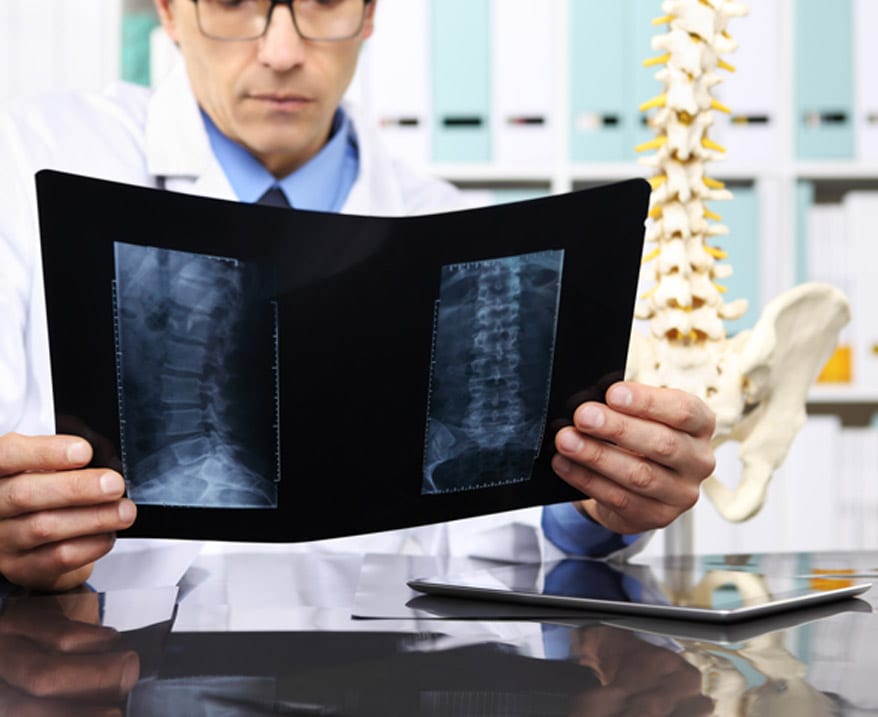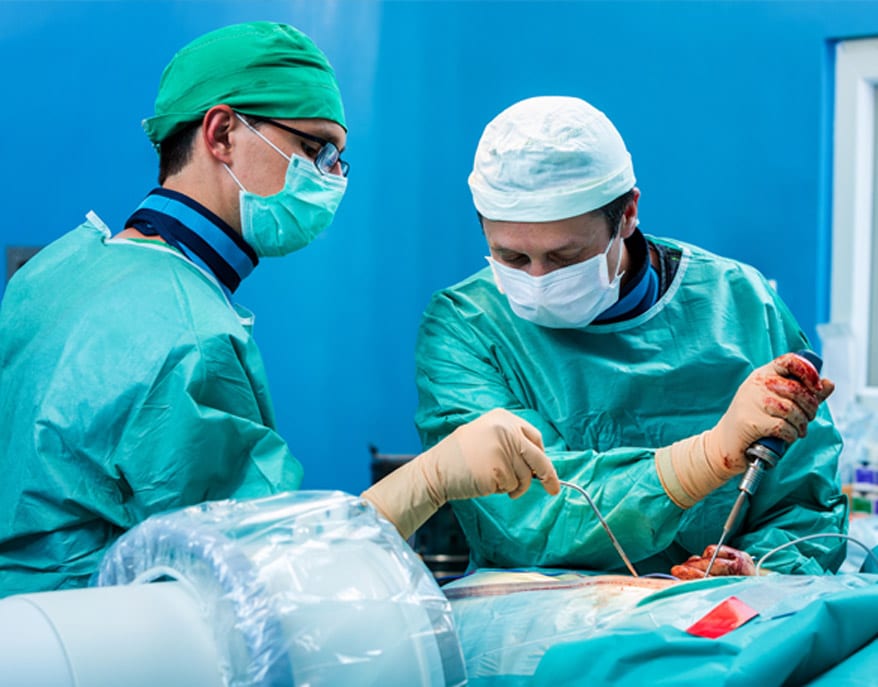
Patients diagnosed with a severe spine condition may need to schedule an appointment with a spine surgery specialist to discuss surgery options. Here are a few things every patient should know before scheduling a visit.
What is a Spine Surgery Specialist?
Orthopedic spine surgeons have completed extensive medical training to diagnose and treat spinal conditions. These specialists may treat conditions such as scoliosis, osteoarthritis, osteoporosis, herniated disc, spinal stenosis, trauma, tumors, vertebral fracture, deformity, infection, and congenital abnormalities.
How to Prepare for an Appointment
Before coming in for an appointment, patients should prepare documents detailing their medical history, family health history, and all of the medications they take, including over-the-counter drugs, vitamins, and herbs. Patients should also write down allergies and any side effects they’ve experienced from taking medication.
Patients should be prepared to discuss their symptoms and describe the type of pain they are experiencing, the location of the pain, and how the pain started (such as which activities trigger or alleviate the pain). In addition, patients should also bring a copy of their diagnostic and imaging tests (x-ray, MRI, blood work, etc.) and be ready to provide the names and contact information of the medical professionals they’ve been treated by for their current condition.


What to Expect During an Appointment
During an appointment with a spine surgery specialist, patients may be asked the following questions:
- When did you begin experiencing symptoms?
- Did the symptoms begin suddenly or gradually?
- Does the pain radiate into the extremities?
- Were you involved in an accident preceding the symptoms?
- How does the condition impact your ability to engage in regular activities?
The specialist will also perform a physical examination, which can involve:
- Inspecting and feeling the spine for muscle tenderness and spasm
- Checking the shoulders and hips to make sure they are of equal height bilaterally
- Evaluating the spinal range of motion
Depending on the findings of the physical examination, the specialist may need to perform a neurological examination to help inform a proper diagnosis.
Who Needs Spine Surgery?
Patients with spinal conditions are encouraged to undergo non-surgical treatment, such as home exercises, physical therapy, medication, and spinal injections, before considering surgery. However, if non-surgical treatment fails to provide relief or if patients are experiencing significant neurogenic pain in the extremities, surgical intervention may be necessary.
Types of Spine Surgery
Patients may undergo traditional spine surgery, minimally invasive spine surgery, or laser spine surgery (which is a form of minimally invasive spine surgery).
During traditional open spine surgery, the surgeon completely exposes the patient’s anatomy. But in minimally invasive spine surgery, the surgeon uses surgical aids to increase visibility into surgical areas, enabling him or her to make a much smaller incision.
Laser spine surgery is a highly effective and precise type of spine surgery that helps deliver great results:
- Pain relief
- Spine stabilization
- Decreased nerve pressure
- Removal of the damaged portion of a disc
- Removal of bone spurs
- Spine fusion to promote stability
Why Trust The Team of Specialists at The Orange County Orthopedic & Pain Center
The team of spine surgery specialists at the Orange County Orthopedic & Pain Center has undergone extensive training and is dedicated to helping patients find lasting pain relief. Don’t hesitate to give us a call!


